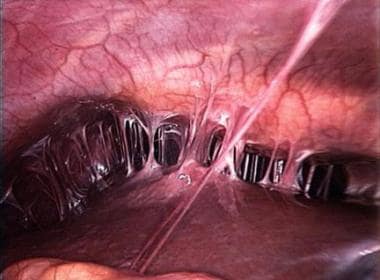
Pelvic inflammatory disease (PID) is a common infection of the female reproductive organs. It occurs when sexually transmitted bacteria spread from the vagina to the uterus, fallopian tubes, or ovaries. PID can cause serious complications if left untreated, so it’s important to recognize the symptoms and seek medical attention.
In this article, we will discuss the common symptoms of PID, and why it’s crucial to seek prompt treatment if you experience any of these symptoms.
1. Pain in the Pelvis and Lower Abdomen
One of the most common symptoms of PID is pain in the pelvis and lower abdomen. This pain can range from mild to severe and may be constant or intermittent. It is often described as a dull, aching sensation that may be exacerbated by movement or sexual activity. If you experience unexplained pelvic or abdominal pain, it’s important to see a healthcare provider for evaluation.
2. Abnormal Vaginal Discharge
Women with PID may notice changes in their vaginal discharge. It may become more abundant, yellow or green in color, and have an unpleasant odor. These changes in vaginal discharge are a result of the infection causing inflammation and irritation of the pelvic organs. If you notice abnormal changes in your vaginal discharge, it’s important to seek medical evaluation to determine the cause.
3. Painful Urination
PID can also cause discomfort or pain during urination. This symptom is a result of the infection spreading to the urethra or bladder. Women with PID may experience a burning sensation when urinating, or feel the need to urinate more frequently. If you experience painful urination along with other symptoms of PID, it’s important to seek medical evaluation and treatment.
4. Irregular Menstrual Bleeding
Another symptom of PID is irregular menstrual bleeding. Women with PID may experience heavier or longer periods, breakthrough bleeding between periods, or spotting after intercourse. These changes in menstrual bleeding are a result of the infection affecting the lining of the uterus and the hormonal regulation of the menstrual cycle. If you notice irregularities in your menstrual bleeding, it’s important to discuss this with your healthcare provider.
5. Fever and Chills
As the infection progresses, women with PID may develop a fever and experience chills. A high fever and chills are signs of a more severe infection that has spread to the bloodstream. If you have a fever along with other symptoms of PID, it’s crucial to seek immediate medical attention, as this can indicate a more serious complication requiring hospitalization.
6. Pain During Intercourse
Women with PID may experience pain during sexual intercourse. This symptom is a result of the infection causing inflammation and irritation of the pelvic organs. If you experience pain during intercourse, it’s important to seek medical evaluation to determine the cause and receive appropriate treatment.
7. Nausea and Vomiting
In severe cases of PID, women may experience nausea and vomiting. These symptoms are a result of the infection causing inflammation and irritation of the pelvic organs, as well as the systemic effects of the infection spreading to the bloodstream. If you experience nausea and vomiting along with other symptoms of PID, it’s crucial to seek immediate medical attention for evaluation and treatment.
8. Painful Ovulation
Some women with PID may experience pain during ovulation. This symptom is a result of the infection causing inflammation and irritation of the ovaries and fallopian tubes. If you experience painful ovulation along with other symptoms of PID, it’s important to seek medical evaluation to determine the cause and receive appropriate treatment.
9. Fatigue and Malaise
As the infection progresses, women with PID may experience fatigue and general feelings of malaise. These symptoms are a result of the infection causing systemic inflammation and affecting the body’s ability to fight off the infection. If you experience fatigue and malaise along with other symptoms of PID, it’s important to seek medical evaluation to determine the cause and receive appropriate treatment.
10. Difficulty Getting Pregnant
Untreated PID can lead to serious complications, including infertility. The infection can cause scarring and damage to the reproductive organs, leading to difficulty getting pregnant. If you have a history of PID and are having trouble conceiving, it’s important to seek evaluation by a fertility specialist to explore the potential causes and treatment options.

















